Whom Has General Semantics Influenced?
A notable, if somewhat eclectic, group of individuals has crossed paths with general semantics over the years. Some of the names you might recognize are in alphabetical order below.

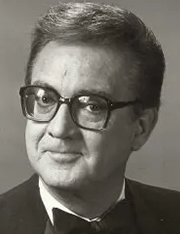 Steve Allen
Steve Allen
Author, entertainer and composer attended a seminar-workshop at the Institute of General Semantics in 1961. In his book Dumbth: And 81 Ways to Make Americans Smarter, he included a chapter encouraging readers to become familiar with general semantics. He also delivered the 1992 Alfred Korzybski Memorial Lecture.

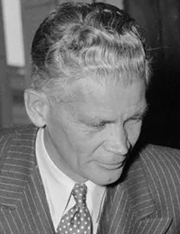 Stuart Chase
Stuart Chase
Noted economist and writer, wrote the first ‘popularization’ of general semantics, The Tyranny of Words. In a national magazine article noting the most influential developments of the first half of the 20th century, Chase included Science and Sanity as one of the top three books.
 Albert Ellis
Albert Ellis
Noted psychologist, originator of Rational-Emotive Behavior Therapy (REBT), cited Korzybski’s work in books he authored such as A Guide to Rational Living, Reason and Emotion in Psychotherapy and How to Live With A “Neurotic”. Dr. Ellis also wrote the Foreword to Drive Yourself Sane, by Susan and Bruce Kodish. Dr. Ellis died in July 2007 and was remembered in the October 2007 issue of the Institute’s journal ETC: A Review of General Semantics.

 David Fairchild
David Fairchild
Son-in-law to Alexander Graham Bell, plant explorer and introducer in the early 20th century, who established the Fairchild Tropical Gardens in Florida, was named an Honorary Trustee of the Institute by Korzybski, whom he had met in the 1920’s in Washington, D.C. (http://www.fairchildgarden.org/aboutfairchild/).

 Alfred Fleishman
Alfred Fleishman
Co-founder of the Fleishman-Hillard public relations firm, advocated general semantics and authored a book which applied GS to management, Common Sense Management. He also wrote several books and pamphlets about how to apply GS principles to the challenging communications environment with inner-city youth gangs, including Common Sense Management and Dialog with a Street Fighter.

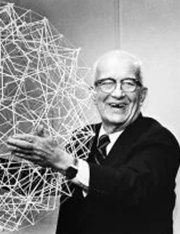 R. Buckminster Fuller
R. Buckminster Fuller
Inventor, architect, philosopher, writer, etc. wrote more than thirty books, coining and popularizing terms like “synergetics” and developing numerous design inventions. Late in his life, he traveled the world giving lectures, and received numerous honorary doctorates. He attended and taught at IGS workshops in the 1950s and delivered the 1955 AKML.

 Dave Garroway
Dave Garroway
Original host of NBC’s Today show, wrote at least one nationally-distributed article about general semantics and moderated the 1963 International Conference on General Semantics in New York City.

 Michael J. Gelb
Michael J. Gelb
Author of How To Think Like Leonardo da Vinci, includes a book on general semantics (Drive Yourself Sane) in his Recommended Reading bibliography.

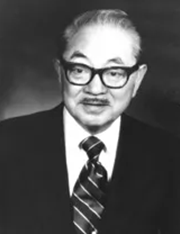 S. I. Hayakawa
S. I. Hayakawa
Former President of San Francisco St. College in the ’60s, then U.S. Senator from California in the ’70s, authored many books and articles dealing with language and semantics, including Language In Thought and Action, a Book of the Month selection in 1941. He was instrumental in forming the International Society for General Semantics and served as editor of ETC: A Review of General Semantics, from 1943-1977.

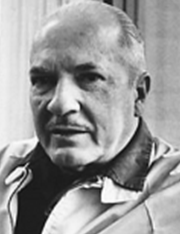 Robert A. Heinlein
Robert A. Heinlein
One of the most popular, influential, and controversial authors of “hard” science fiction. He was among the first authors of bestselling, novel-length science fiction in the modern, mass-market era. Heinlein attended two seminars with Korzybski and in novels such as Stranger in a Strange Land, Heinlein explicitly incorporated general semantics formulations and themes. He stated in 1941, regarding Korzybski, “You may not like him personally, but he’s at least as great a man as Einstein – at least – because his field is broader. The same kind of work that Einstein did, the same kind of work, using the same methods; but in a much broader field, much more close to human relationships.”

 Alfred Hitchcock
Alfred Hitchcock
Is said to have been interested in general semantics, including a reference to it in The Birds; the Tipi Hedren character, Melanie, states, “And on Tuesdays, I take a course in General Semantics at Berkeley …”

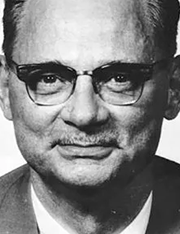 Wendell Johnson
Wendell Johnson
For whom the Speech and Hearing Center at the University of Iowa is now named, noted researcher in stutterering, authored People In Quandaries, Because I Stutter, and Your Most Enchanted Listener. People In Quandaries has been used as not only as a textbook for English and general semantics courses, but also as an undergraduate psychology text.

 Arthur Koestler
Arthur Koestler
In a 1971 letter to Institute Trustee Walter Davis, commented, “I know Korzybski’s work and agree with much of what he says.”

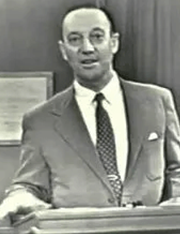 Irving J. Lee
Irving J. Lee
Professor of speech at Northwestern University in the ’30s and ’40s, did extensive consulting work with the police department in Chicago and several corporations concerning communications and prejudice; he authored Language Habits in Human Affairs as a GS textbook, and edited a collection of articles representative of The Language of Wisdom and Folly.

 Lou Marinoff
Lou Marinoff
Author of Plato, Not Prozac!, who presented the 50th annual Alfred Korzybski Memorial Lecture at the Yale Club in New York City in November 2001 and cited Korzybski’s work.

 Abraham Maslow
Abraham Maslow
American psychologist and author (Motivation and Personality, Toward a Psychology of Being) most noted for his proposal of a hierarchy of human needs and the “father of humanistic psychology,” attended and taught at Institute workshops in the 1950s. He also delivered the 1957 AKML.

 Neil Postman
Neil Postman
Former Paulette Goddard Professor of Media Ecology at New York University’s Steinhardt School of Education, former Chair of the Department of Culture and Communication, and author of 17 books on education and culture such as Crazy Talk Stupid Talk, Teaching as a Subversive Activity, and Conscientious Objections. He also served as Editor of ETC: A Review of General Semantics, from 1977 to 1986. Postman died in October 2003 and was featured in the Winter 2003/4 issue of ETC.

 Allen Walker Read
Allen Walker Read
The renowned American lexicographer and professor of English at Columbia University, author of Classic American Graffiti, Milestones in the History of English in America, and America, Naming the Country and Its People. He and his wife Charlotte Schuchardt Read left a sizable bequest to the Institute in 2002, for whom the Institute’s Read House was named.

 Christopher B. Sheldon
Christopher B. Sheldon
The courageous sailing captain and teacher whose tragic true story was recounted in the movie White Squall, was an active Trustee with the Institute of General Semantics from the mid-1950s until his death in 2002.

 Robin Skynner
Robin Skynner
British physician and co-author with John Cleese, of Families: And How to Survive Them, and Life: And How to Survive It, attended the 1947 seminar-workshop with Korzybski and published several articles dealing with general semantics and psychology immediately afterward.

 Alvin Toffler
Alvin Toffler
Author and futurist, addressed the general semantics conference at Yale University in 1988 and provided the introduction to a book of collected articles about general semantics, Thinking and Living Skills, edited by Gregory Sawin.

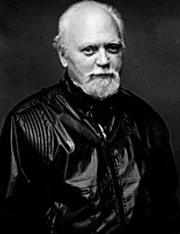 Robert Anton Wilson
Robert Anton Wilson
A contemporary popular science fiction writer (The Illuminatus Trilogy, Schroedinger’s Cat) attended two Institute seminars in the late 1950s and embraced an extensional orientation in his work until his death in 2006.
| Christine L. Nystrom Christine L. Nystrom was considered a pioneer in the field of Media Ecology, and taught in the Media Ecology program alongside Neil Postman in New York University for over 30 years. Nystrom’s work includes “The Genes of Culture: Towards a Theory of Symbols, Meaning, and Media, Volume 1 and Volume 2". |

